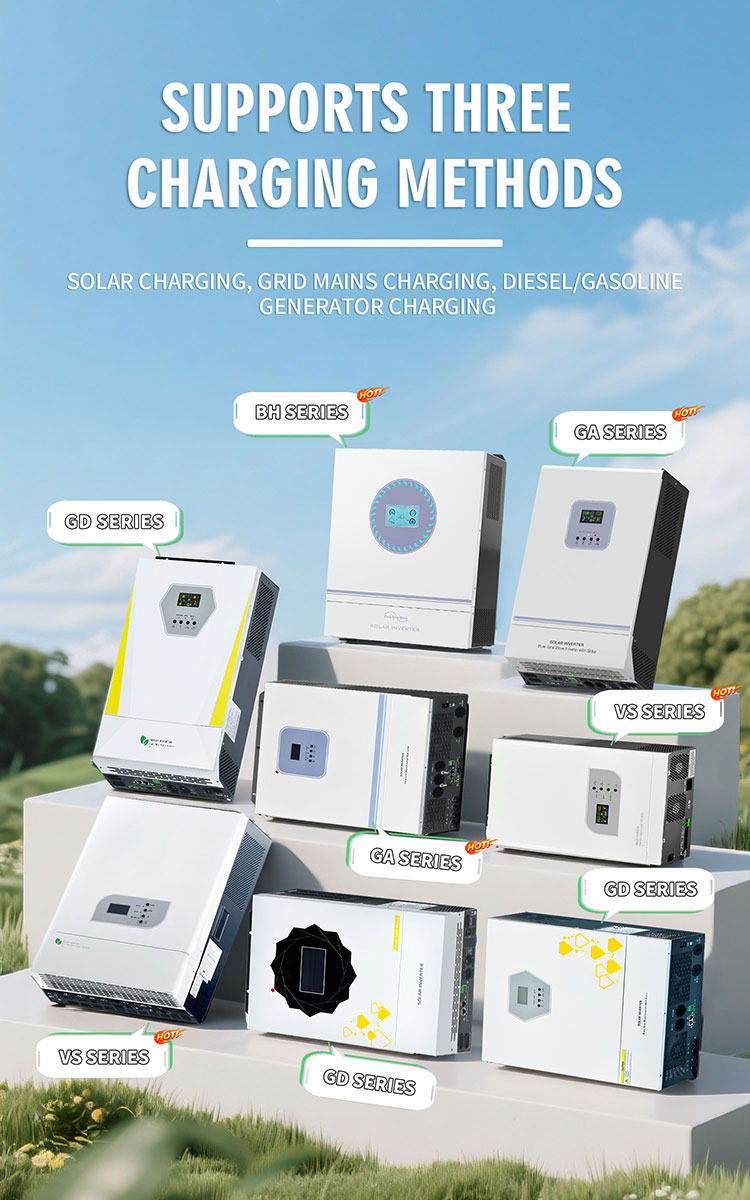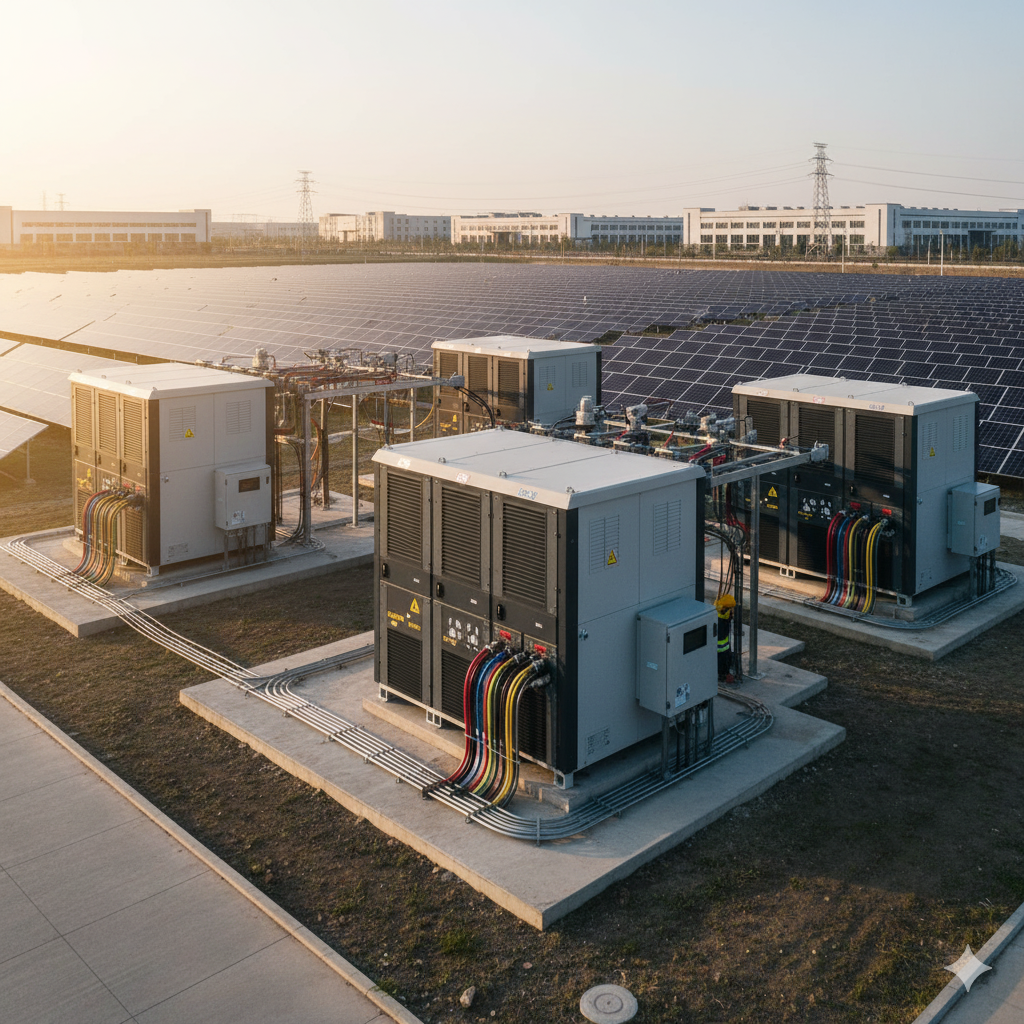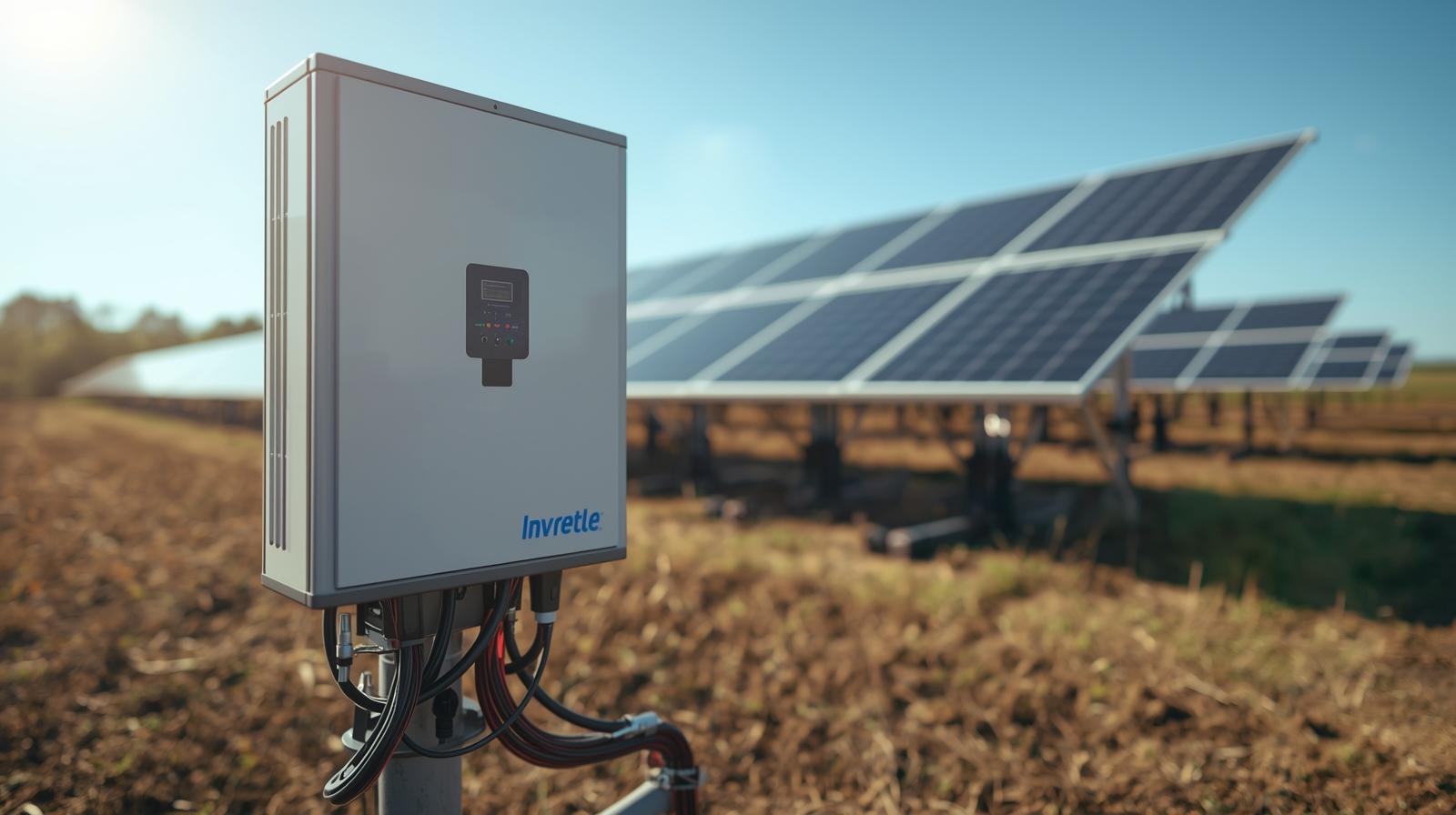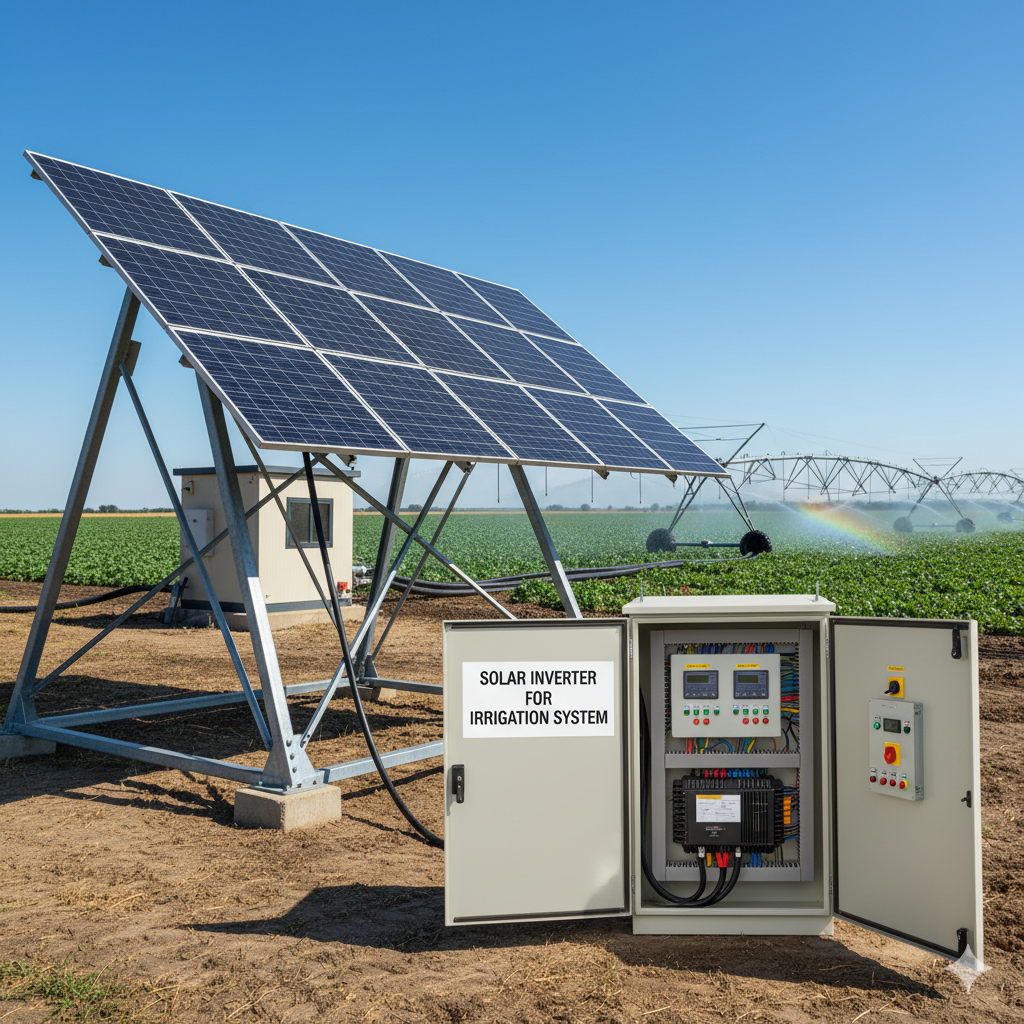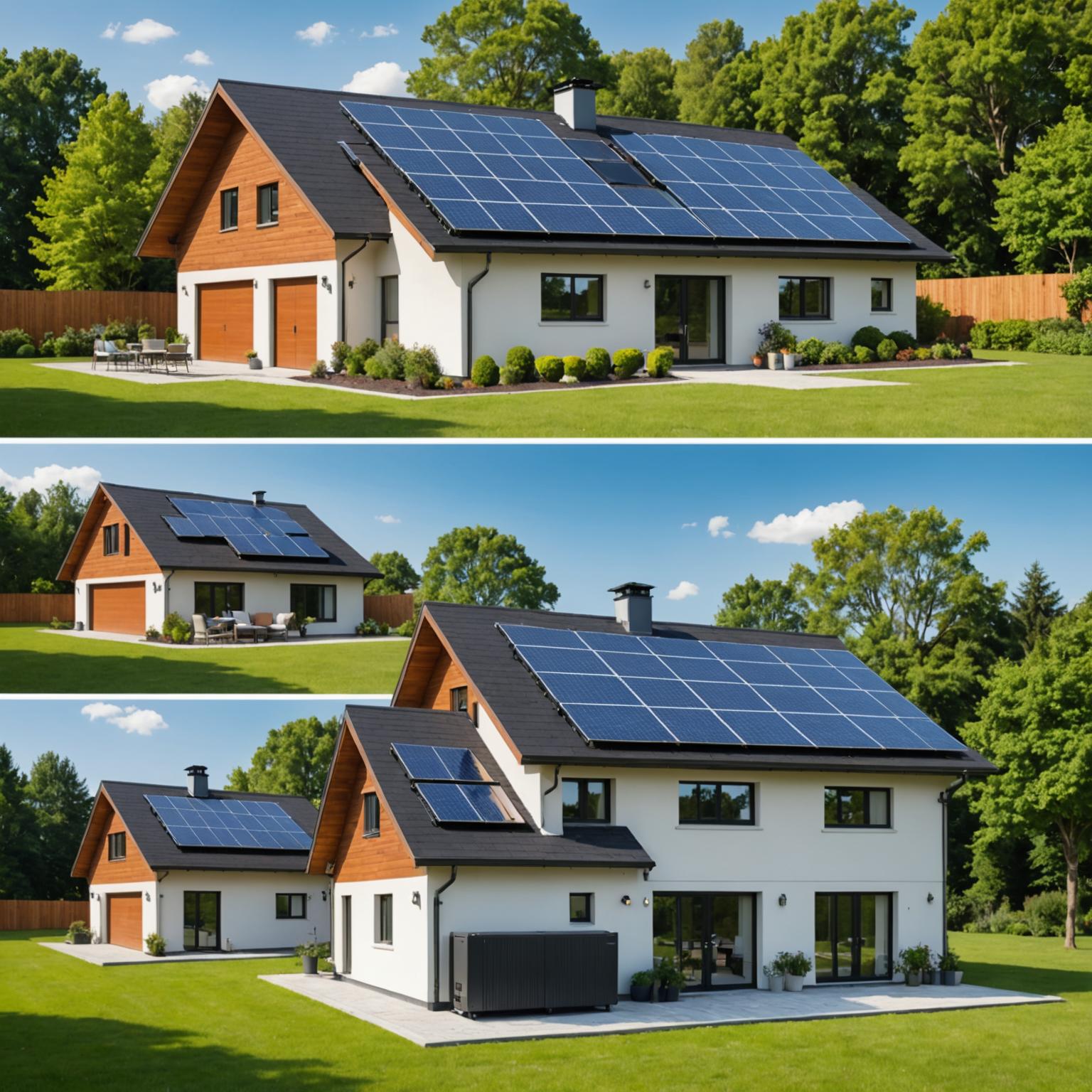
Transforming Energy: The Inverter Company's Hybrid Solution
As the global energy sector evolves, hybrid inverter technology has emerged as a defining innovation in power management. A forward-looking inverter company today must go beyond voltage conversion—it must enable seamless energy integration. By combining solar generation, battery storage, and grid connection, hybrid systems ensure energy independence and efficiency across both residential and industrial applications.
This transformation aligns with global sustainability targets outlined by organizations such as the International Renewable Energy Agency (IRENA) and the Energy Storage Association (ESA), which emphasize hybrid systems as key to stabilizing renewable energy supply.
Hybrid Systems: The Future of Intelligent Energy Conversion
Modern hybrid inverters are the backbone of smart energy systems. Unlike traditional inverters that only convert DC to AC, hybrids manage multiple energy streams simultaneously—balancing supply, demand, and storage.
Key engineering advancements driving this shift include:
-
Bi-directional power flow control, enabling charging and discharging optimization.
-
High-efficiency MPPT tracking, ensuring maximum solar output utilization.
-
Smart communication protocols (RS485, CAN, Wi-Fi) for remote monitoring.
-
Integrated protection systems for surge, temperature, and overload resistance.
These features make hybrid inverters indispensable in achieving both grid stability and off-grid resilience—particularly for regions facing energy volatility or rising electricity costs.
Where Hybrid Inverters Deliver Maximum Value
Hybrid inverters are not limited to homes; they now power factories, schools, hospitals, and agricultural facilities. Their scalability makes them ideal for diverse use cases.
| Application | Energy Configuration | Key Benefit | Typical Power Range |
|---|---|---|---|
| Residential Homes | Solar + Battery + Grid | Backup power and savings | 3kW–10kW |
| Commercial Buildings | Solar + Battery + Generator | Peak load management | 10kW–30kW |
| Industrial Facilities | Solar + Diesel Backup | Load balancing and reliability | 30kW–100kW |
| Remote Areas | Solar + Battery | Full autonomy, off-grid | 5kW–50kW |
Each scenario demands a specific inverter configuration, which is why a professional inverter manufacturer with engineering expertise can tailor systems that reduce energy waste, extend battery life, and improve ROI.
Manufacturing and Engineering Excellence Behind Every System
Behind every reliable hybrid inverter lies a strong inverter factory equipped with automation, precision assembly, and quality assurance systems. Leading inverter suppliers focus on both hardware and firmware innovation:
-
Automated SMT and PCB lines ensure tight production tolerances.
-
Thermal simulation testing guarantees stability in extreme climates.
-
Customizable OEM enclosures fit regional voltage and environmental standards.
-
Compliance with CE, IEC, UL certifications, ensuring market-ready products.
Such manufacturing discipline transforms hybrid inverters from commodity products into engineered solutions trusted by EPC contractors and renewable developers worldwide.
Practical Advantages for Global Distributors and EPC Projects
Working with an experienced hybrid inverter company means gaining access to both technical and logistical advantages:
-
OEM & ODM services that allow customized branding, firmware, and casing.
-
Flexible supply capacity for pilot projects or mass deployment.
-
Engineering consultation for hybrid grid integration and load analysis.
-
After-sales support, including remote monitoring and real-time troubleshooting.
These combined services reduce project risks, lower operational costs, and help partners scale across international markets.
Challenges Solved by Modern Hybrid Inverters
-
Unstable Grid Power:
Advanced hybrid inverters automatically switch to stored battery energy during outages, ensuring business continuity. -
Rising Electricity Costs:
Smart load management and time-of-use optimization lower dependency on expensive peak-hour grid power. -
Complex System Integration:
Hybrid inverters integrate PV, battery, and generator input under a unified control system, simplifying installation and maintenance. -
Environmental Resilience:
Dust-proof and heat-resistant designs make them suitable for industrial parks, remote regions, and tropical climates.
These advantages make hybrid inverters a strategic investment, not just an energy device.
Common Questions from International Buyers
Q1: Are hybrid inverters compatible with all battery types?
Yes. Most hybrid inverter systems now support lithium-ion, LiFePO4, and lead-acid batteries with adjustable voltage parameters.
Q2: Can I order hybrid inverters under my own brand?
Absolutely. OEM production allows private labeling with full technical and aesthetic customization.
Q3: What certifications should I check before importing?
Ensure compliance with IEC 62109, CE, and UL1741 standards for global distribution.
Q4: How do hybrid inverters perform in off-grid environments?
High-end models include intelligent MPPT and temperature compensation to maintain stable output even in isolated systems.
Thlinksolar: Powering the Next Generation of Hybrid Energy
At Thlinksolar, we believe hybrid technology is the key to achieving energy independence and sustainability. As a professional inverter company, we integrate advanced R&D, smart manufacturing, and international certifications to deliver trusted hybrid inverter solutions for global markets.
From residential systems to industrial-scale installations, Thlinksolar’s products deliver efficiency, reliability, and compatibility. Our production facilities meet ISO quality standards and offer OEM/ODM customization to align with partner needs.
Learn more about our hybrid inverter systems on our homepage or contact our engineering team via our contact page to explore OEM partnerships and renewable project solutions.
